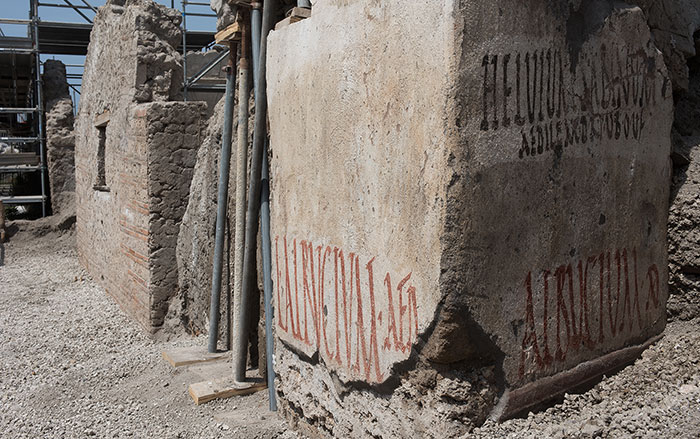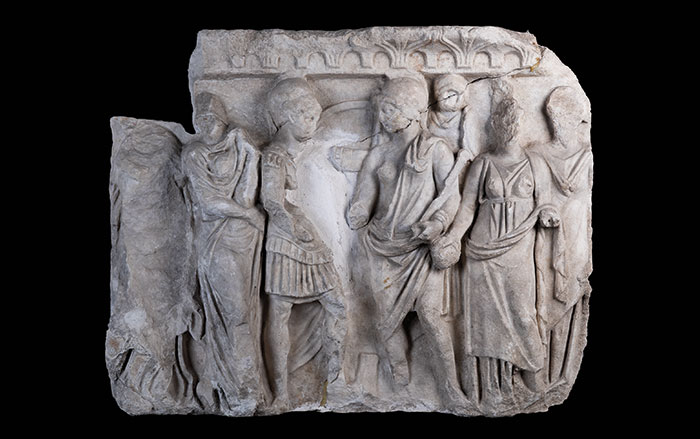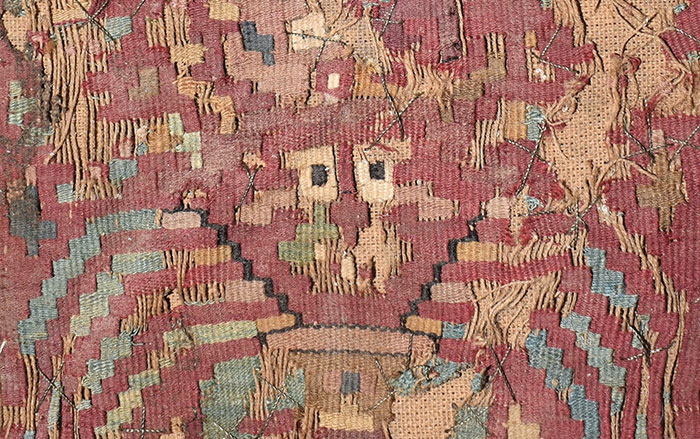LEIDEN, THE NETHERLANDS—The Greek alphabet might be centuries older than once thought, according to a statement released by the University of Leiden. Scholars theorize that the script emerged around the eighth century b.c., after the ancient Greeks adapted the older Phoenician alphabet—which was composed of only consonants and no vowels—to fit their own needs. This period in Greek history was the purported time of the poet Homer, who composed the Iliad and the Odyssey. However, University of Leiden classicist Willemijn Waal has recently suggested the Greek written language appears on pottery earlier than that, and likely dates back to the ninth or even tenth century b.c. Alphabetic scripts written on perishable material such as wood or papyrus may be even older, but have failed to survive in the archaeological record. If the Greek alphabet did exist at this early date, it means that there was no 400-year-long ‘Dark Age’ without alphabetic writing, as some archaeologists currently believe. “The idea that both the Greek alphabet and Homer date from the eighth century b.c. has been around for almost a hundred years and is widely accepted,” Waal said. “I am now questioning this knowledge, and that will undoubtedly meet with some resistance. But new insights are also precisely what makes science fun; you never stop learning.” To read about symbols that one scholar believes may be the oldest alphabetic writing, go to "Primordial Alphabet Soup."
Is the Greek Alphabet Older Than Once Thought?
News May 8, 2025
Recommended Articles

Model Homes March/April 2026
Doorways for the Dead
LOCATION: Thebes, Egypt
DATES: Ca. 1981–1975 b.c.

Model Homes March/April 2026
A Maya God’s Humble Abode
LOCATION: Copán, Honduras
DATE: Ca. a.d. 700–850


-
Features May/June 2025
A Passion for Fruit
Exploring the surprisingly rich archaeological record of berries, melons…and more
 © BnF, Dist. RMN-Grand Palais/Art Resource, NY
© BnF, Dist. RMN-Grand Palais/Art Resource, NY -
Features May/June 2025
Goddess at the Crossroads
Why a city put its trust in a Greek deity feared throughout the Mediterranean world
 Istanbul Archaeology Museums
Istanbul Archaeology Museums -
Features May/June 2025
Desert Paradise Found
How a tiny, water-rich kingdom came to dominate vital trade routes in the Arabian Gulf 4,000 years ago
 Courtesy BACA/Moesgaard Museum
Courtesy BACA/Moesgaard Museum -
Features May/June 2025
Peru’s Timeless Threads
More than 1,000 years ago, master weavers kept the ancient traditions of the Moche culture alive
 Jeffrey Quilter
Jeffrey Quilter



